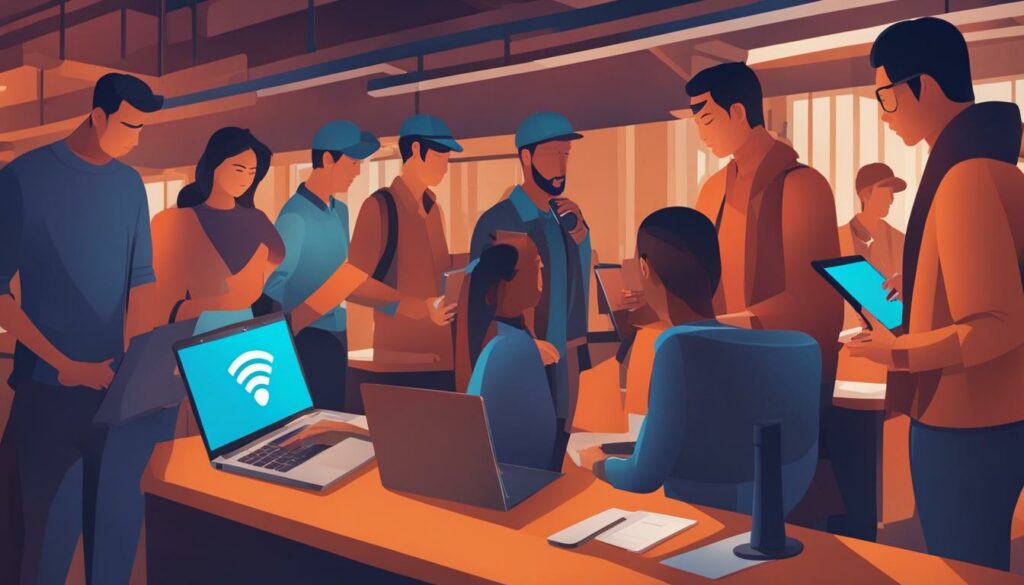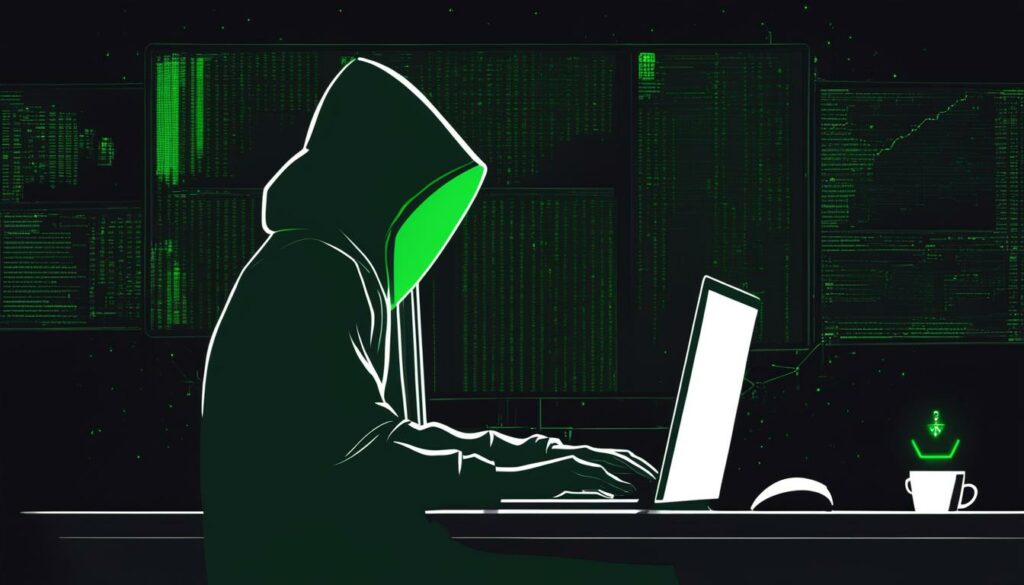With the increasing prevalence of cyber threats, protecting your online security has become more important than ever. One tool that is commonly touted for its ability to enhance security is a Virtual Private Network (VPN). But can VPNs really protect you from hackers?
In this article, we will delve into the topic of VPNs and their effectiveness in safeguarding your digital presence against hackers. We will explore how a VPN prevents hacking, the types of hacks a VPN can protect against, and the limitations you should be aware of. By the end of this article, you will have a better understanding of whether a VPN can truly shield you from the threats posed by hackers.
Let’s dive in!
Key Takeaways:
- A VPN can provide protection against certain types of cyber attacks, such as MITM attacks, remote hacking, and DDoS attacks.
- However, a VPN cannot protect against all types of hacking, such as malware and phishing attacks.
- Using a VPN in conjunction with other security measures can greatly enhance your online security and reduce the risk of falling victim to hacking.
- Choose a reputable VPN provider that offers robust security features and prioritizes user privacy.
- Stay vigilant in practicing safe online habits, keeping software updated, enabling firewalls, using antivirus software, and securing your router.
How Does a VPN Prevent Hacking?
A virtual private network (VPN) is a powerful tool that can provide essential protection against hacking and safeguard your online activities. But how exactly does a VPN prevent hacking? Let’s explore the key mechanisms that make VPNs an effective defense against cyber-attacks.
Encryption: Protecting Your Data
One of the primary ways a VPN prevents hacking is through encryption. When you connect to a VPN, it creates a secure tunnel between your device and the VPN server. All the data transmitted through this tunnel is encrypted, making it unreadable to hackers.
This encryption ensures that even if hackers manage to intercept your data, they won’t be able to decipher it without the encryption key. It adds an additional layer of security, preventing unauthorized access and protecting your sensitive information.
IP Address Masking: Hiding Your Digital Footprint
Another critical aspect of VPN protection is IP address masking. Your IP address is a unique identifier that reveals your location and online activities. By masking your IP address, a VPN makes it difficult for hackers to track your online movements and target your device.
When you connect to a VPN server, it assigns you a different IP address from its network. This means that your real IP address remains hidden, reducing the risk of being targeted by hackers seeking to exploit vulnerabilities in your system.
Securing Public Wi-Fi: Staying Safe on the Go
Public Wi-Fi networks are notorious hunting grounds for hackers. They often use these networks to launch attacks and intercept data transmitted over unsecured connections. However, a VPN can provide vital protection in these situations.
By using a VPN on public Wi-Fi, you can ensure that all your data is encrypted, making it almost impossible for hackers to decipher. This helps safeguard your sensitive information, such as login credentials and financial details, even while connected to potentially risky networks.
Types of Hacks a VPN Can Protect Against
A VPN can provide effective protection against various types of cyber attacks, making it an essential tool for safeguarding your online security. By encrypting your data and masking your IP address, a VPN significantly reduces the risk of numerous hacking techniques. Let’s explore the different types of hacks that a VPN can protect against:
1. Man-in-the-Middle (MITM) Attacks
A VPN prevents hackers from intercepting and manipulating your data during MITM attacks. By encrypting your internet activity, it ensures that your communications remain secure and private. This protection is especially crucial when accessing sensitive information, such as financial or personal details, over public Wi-Fi networks.
2. Fake Wi-Fi Hotspots
Hackers often create fake Wi-Fi hotspots to trick users into connecting to their network. By doing so, they gain access to your data and can launch various attacks. However, when using a VPN, your data is encrypted, making it unreadable to hackers even if you unknowingly connect to a fake hotspot.
3. Remote Hacking
A VPN protects against remote hacking attempts by masking your IP address. When your IP address is hidden, hackers cannot target your device for unauthorized access. This adds an extra layer of security, preventing malicious individuals from gaining control over your devices and stealing your sensitive information.
4. DDoS Attacks
Distributed Denial of Service (DDoS) attacks can disrupt your online activities by overwhelming your network with a flood of traffic. However, by routing your internet connection through a VPN server, your actual IP address remains hidden. This makes it difficult for attackers to target your device and launch DDoS attacks.
5. Session Hijacking
A VPN protects against session hijacking by encrypting your internet traffic and making it virtually impossible for hackers to snoop on your sessions or steal your session cookies. This helps ensure that your online sessions remain secure, preserving the confidentiality of your data and preventing unauthorized access to your accounts.
6. Cross-Site Scripting
Cross-Site Scripting (XSS) attacks involve injecting malicious code into websites, which can then be executed on the user’s browser. However, when using a VPN, your browser’s connection is encrypted, mitigating the risk of XSS attacks. This helps safeguard your data and protects you from potential exploitation.
7. Digital Footprint Leaks
Your digital footprint consists of the information that you leave behind while browsing the internet. This includes your IP address and your online activities. A VPN masks your IP address and encrypts your data, preventing your digital footprint from being easily traced back to you. This enhances your privacy and reduces the risk of identity theft or online tracking.
By protecting against these various hacking techniques, a VPN plays a crucial role in ensuring your online security and privacy. However, it’s important to remember that while a VPN is a powerful tool, it cannot protect against all types of attacks. Additional security measures, such as using antivirus software and practicing safe browsing habits, are still necessary for comprehensive protection.
What Hacks Can a VPN Not Protect You From?
While a VPN can provide strong protection against many types of hacking, it is essential to understand its limitations. A VPN primarily focuses on encrypting your internet activity and hiding your IP address, but there are certain vulnerabilities it cannot address. Here are some key hacks that a VPN cannot fully protect you from:
Malware Attacks
Malware, such as viruses, worms, and ransomware, can infect your device through various channels, including malicious websites, infected email attachments, or compromised software downloads. A VPN cannot detect or prevent these types of attacks. To safeguard against malware, it is important to use reputable antivirus software, keep your devices updated, and exercise caution when browsing the internet.
Phishing Attacks
Phishing attacks involve fraudulent attempts to deceive individuals into revealing sensitive information, such as login credentials or credit card details. These attacks usually occur through deceptive emails, messages, or websites that mimic trusted entities. While a VPN can encrypt your data transmission, it cannot protect you from falling victim to phishing scams. To avoid phishing attacks, be vigilant when clicking on links or providing personal information online.
Human Error
One of the most common vulnerabilities in cybersecurity is human error. No matter how secure your connection is, if you accidentally disclose sensitive information, share passwords, or click on malicious links, you can compromise your own security. A VPN cannot prevent these types of mistakes, so it is crucial to practice safe online habits, such as being cautious with your personal information and maintaining strong passwords.
While a VPN is a valuable tool in enhancing your online security and privacy, it is important to take a comprehensive approach to protect yourself from all potential threats. By combining a VPN with other security measures, such as using antivirus software, staying vigilant against phishing attempts, and practicing safe browsing habits, you can create a robust defense against hackers and cybercriminals.
Can a VPN Protect You on Public Wi-Fi?
Using public Wi-Fi networks can be convenient, but it also exposes you to various hacking risks. Hackers can easily set up fake Wi-Fi hotspots and intercept the data transmitted over unsecured networks. This puts your personal and sensitive information at risk of being stolen. However, by using a VPN, you can protect yourself and ensure secure internet browsing.
A VPN works by encrypting your data and making it unreadable to hackers. When you connect to a VPN server, all your internet traffic is routed through a secure tunnel. This encryption prevents hackers from intercepting and accessing your data, even if they manage to infiltrate the network. Furthermore, a VPN masks your IP address, making it difficult for hackers to target your device and launch hacking attempts.
Whether you’re checking emails, accessing your bank account, or browsing social media, using a VPN on public Wi-Fi significantly enhances your security. It adds an extra layer of protection and prevents potential data theft. By ensuring all your internet traffic is encrypted, a VPN safeguards your sensitive information, such as passwords, credit card details, and personal data, from falling into the wrong hands.

Benefits of Using a VPN on Public Wi-Fi:
- 1. Protects your data from interception
- 2. Masks your IP address
- 3. Prevents hackers from targeting your device
- 4. Secures sensitive information
“Using a VPN on public Wi-Fi can significantly enhance your security and protect against data theft.”
It is crucial to choose a reliable VPN provider that offers strong encryption and adheres to privacy-oriented policies. Look for a VPN that supports multiple platforms and uses secure protocols like OpenVPN and IKEv2. Additionally, always remember to practice safe online habits, such as avoiding suspicious websites and regularly updating your devices and software, to further protect yourself from hacking attempts.
Can a VPN Protect You at Home?
Even at home, you are not immune to hacking attempts. With the increasing number of internet-connected devices, your home network can be targeted by hackers. A VPN can protect your home network by hiding your IP address and encrypting your data. This makes it more difficult for hackers to gain access to your devices and personal information.
By using a VPN at home, you can create a secure online environment and defend against potential threats. It ensures that your internet activity is encrypted, preventing hackers from intercepting your data. Additionally, a VPN masks your IP address, making it challenging for hackers to track your online movements or identify your device as a target.
Whether you’re browsing the web, streaming content, or engaging in online banking, using a VPN provides an extra layer of security. It encrypts your data transmission, making it nearly impossible for hackers to decipher your information. With a VPN, you can enjoy greater peace of mind and protect your sensitive data from falling into the wrong hands.
The Benefits of Using a VPN at Home
- Enhanced Privacy: A VPN shields your online activities from prying eyes, ensuring your privacy is protected.
- Secure Data Transmission: By encrypting your internet connection, a VPN safeguards your data from interception and unauthorized access.
- Protection Against Cyber Attacks: With a VPN, you can mitigate the risk of hacking attempts, such as session hijacking and cross-site scripting attacks.
- Prevents Data Throttling: Some internet service providers throttle bandwidth for certain activities. A VPN can bypass these restrictions, ensuring fast and uninterrupted internet access.
In conclusion, a VPN can effectively protect you at home by hiding your IP address, encrypting your data, and providing an additional layer of security. It is a crucial tool in safeguarding your online privacy and defending against hacking attempts. Remember to choose a reliable VPN provider and stay vigilant in practicing safe online habits.
How Does a VPN Protect Against Specific Hacks?
A VPN protects against specific hacks by encrypting your data and hiding your IP address. This prevents hackers from intercepting your data during a Man-in-the-Middle (MITM) attack, setting up fake Wi-Fi hotspots, gaining remote access to your devices, launching DDoS attacks, hijacking your sessions, executing cross-site scripting attacks, and leaking your digital footprint. By utilizing strong encryption and IP masking, a VPN provides robust protection against these hacking techniques.
When you connect to a VPN, all of your internet traffic is encrypted. This means that even if a hacker manages to intercept your data, they won’t be able to read or use it. The encryption process converts your data into an unreadable format that can only be deciphered with the correct encryption key. This makes it extremely difficult for hackers to steal your sensitive information or gain unauthorized access to your devices.
Table: How a VPN Protects Against Specific Hacks
| Hack | How a VPN Protects |
|---|---|
| Man-in-the-Middle (MITM) Attack | Encrypts data, making it unreadable to hackers |
| Fake Wi-Fi Hotspots | Prevents hackers from intercepting data sent over unsecured networks |
| Remote Hacking | Hides your IP address, making it difficult for hackers to target your device |
| DDoS Attacks | Masking your IP address, preventing hackers from launching attacks against your device or network |
| Session Hijacking | Encrypts session data to prevent unauthorized access |
| Cross-Site Scripting Attacks | Makes it difficult for hackers to execute malicious scripts |
| Digital Footprint Leaks | Protects your online identity by masking your IP address and encrypting your data |
Using a VPN not only safeguards your data from hackers but also helps maintain your online privacy. By hiding your IP address, a VPN prevents websites, advertisers, and other online entities from tracking your online activities. This added layer of anonymity further protects your personal information and minimizes the risk of targeted cyber-attacks.
In summary, a VPN provides comprehensive protection against specific hacking techniques by encrypting your data and hiding your IP address. It safeguards your information from interception, secures your online sessions, and reduces the risk of becoming a victim of cybercrime. By understanding how a VPN works and utilizing its features, you can significantly enhance your cybersecurity and enjoy a safer online experience.
What Else Can You Do to Enhance Your Online Security?
While using a VPN is a crucial step in protecting yourself from hackers, there are other measures you can take to enhance your online security. By combining these practices with a VPN, you can create a comprehensive defense against hackers.
Keep Your Software Updated
Regularly updating your software, including your operating system, web browsers, and antivirus programs, is essential for maintaining strong security. Updates often include patches for vulnerabilities that hackers could exploit.
Enable Firewalls
Firewalls act as a barrier between your network and potential intruders. Enable the built-in firewall on your operating system and consider adding a dedicated hardware firewall for an extra layer of protection.
Use Antivirus Software
Antivirus software scans your computer for malicious programs and helps remove them. Ensure you have a reputable antivirus program installed and keep it updated to detect and block any potential threats.
Secure Your Router
Your router is the entry point to your home network, so it’s important to secure it. Change the default administrator password, disable remote access, and enable encryption (such as WPA2) for your Wi-Fi network.
Be Cautious on Public Wi-Fi Networks
When accessing the internet on public Wi-Fi networks, be cautious of the data you transmit. Avoid entering sensitive information and consider using a VPN to encrypt your data and protect against potential hackers.

By following these additional measures, you can further enhance your online security and reduce the risk of falling victim to hacking. Remember to choose a reliable VPN provider and stay vigilant in practicing safe online habits.
How to Choose a Secure VPN
When it comes to selecting a VPN, it’s crucial to choose a provider that prioritizes security and offers robust features to protect you from hackers. With numerous options available, it can be overwhelming to determine which VPN is the right fit for your needs. Here are some key factors to consider when choosing a secure VPN:
Security Features
Look for a VPN that offers essential security features to safeguard your online activities. One important feature is a kill switch, which automatically disconnects your internet if the VPN connection drops, preventing any potential data leaks. Additionally, ensure that the VPN uses secure protocols such as OpenVPN and IKEv2, which provide strong encryption and secure data transmission.
Platform Compatibility
Consider your devices and operating systems when selecting a VPN. Look for a provider that supports multiple platforms, including Windows, Mac, iOS, and Android, to ensure seamless integration across all your devices. This will allow you to protect your online activities regardless of the device you’re using.
Privacy Policies
It’s important to choose a VPN provider that follows privacy-oriented policies and has a strong track record of protecting user data. Read their privacy policy thoroughly to understand how they handle and protect your personal information. Look for providers that have a strict no-logs policy, meaning they don’t keep records of your online activities.
Price and Reputation
While price should not be the sole determining factor, it is necessary to consider your budget when selecting a VPN. Compare pricing plans and features of different providers to find a balance between cost and security. Additionally, research the reputation of the VPN provider by reading user reviews and checking independent security audits to ensure they have a positive track record.
Conclusion
In conclusion, using a VPN can provide significant protection against hackers and enhance your online security. While it is not a foolproof solution, a VPN can safeguard your data and privacy by encrypting your internet activity and hiding your IP address. By doing so, it becomes extremely difficult for hackers to intercept and steal your information.
However, it is important to note that a VPN cannot protect against all types of hacking, such as malware attacks or phishing attempts. To ensure comprehensive security, it is crucial to combine the use of a VPN with other measures, like keeping your software updated, enabling firewalls, using antivirus software, securing your router, and practicing caution on public Wi-Fi networks.
When choosing a VPN, opt for a reputable provider that offers robust security features, including a kill switch and secure protocols such as OpenVPN and IKEv2. Additionally, take into consideration the VPN’s track record in protecting user data and its privacy-oriented policies. By selecting a reliable VPN and following safe online habits, you can significantly reduce the risk of falling victim to hacking and enhance your overall online security.
FAQ
Can a VPN protect you from hackers?
Yes, a VPN can provide protection against certain types of cyber attacks, such as Man-in-the-Middle (MITM) attacks, remote hacking, and Distributed Denial-of-Service (DDoS) attacks.
How does a VPN prevent hacking?
A VPN protects against hacking by encrypting your internet activity and hiding your IP address. This encryption makes it extremely difficult for hackers to intercept and steal your data.
What types of hacks can a VPN protect against?
A VPN can protect against various types of cyber attacks, including MITM attacks, fake Wi-Fi hotspots, remote hacking, DDoS attacks, session hijacking, cross-site scripting, and digital footprint leaks.
What hacks can a VPN not protect you from?
While a VPN can provide strong protection against many types of hacking, it cannot protect against malware attacks, phishing attacks, or human error. Additional measures, such as using antivirus software and being cautious online, are necessary to protect against these threats.
Can a VPN protect you on public Wi-Fi?
Yes, using a VPN on public Wi-Fi can significantly enhance your security and protect against data theft. It encrypts your data and makes it unreadable to hackers.
Can a VPN protect you at home?
Yes, a VPN can protect your home network by hiding your IP address and encrypting your data. This makes it more difficult for hackers to gain access to your devices and personal information.
How does a VPN protect against specific hacks?
A VPN protects against specific hacks by encrypting your data and hiding your IP address. This prevents hackers from intercepting your data during a MITM attack, setting up fake Wi-Fi hotspots, gaining remote access to your devices, launching DDoS attacks, hijacking your sessions, executing cross-site scripting attacks, and leaking your digital footprint.
What else can you do to enhance your online security?
In addition to using a VPN, you can enhance your online security by keeping your software updated, enabling firewalls, using antivirus software, securing your router, and being cautious on public Wi-Fi networks.
How to choose a secure VPN?
When selecting a VPN, choose a reputable provider that offers robust security features, such as a kill switch, secure protocols like OpenVPN and IKEv2, multi-platform support, and a strong track record of protecting user data. Price and privacy-oriented policies are also important factors to consider.
Conclusion
While a VPN can provide significant protection against many types of hacking, it is important to be aware of its limitations and to take additional security measures to fully protect yourself online.






